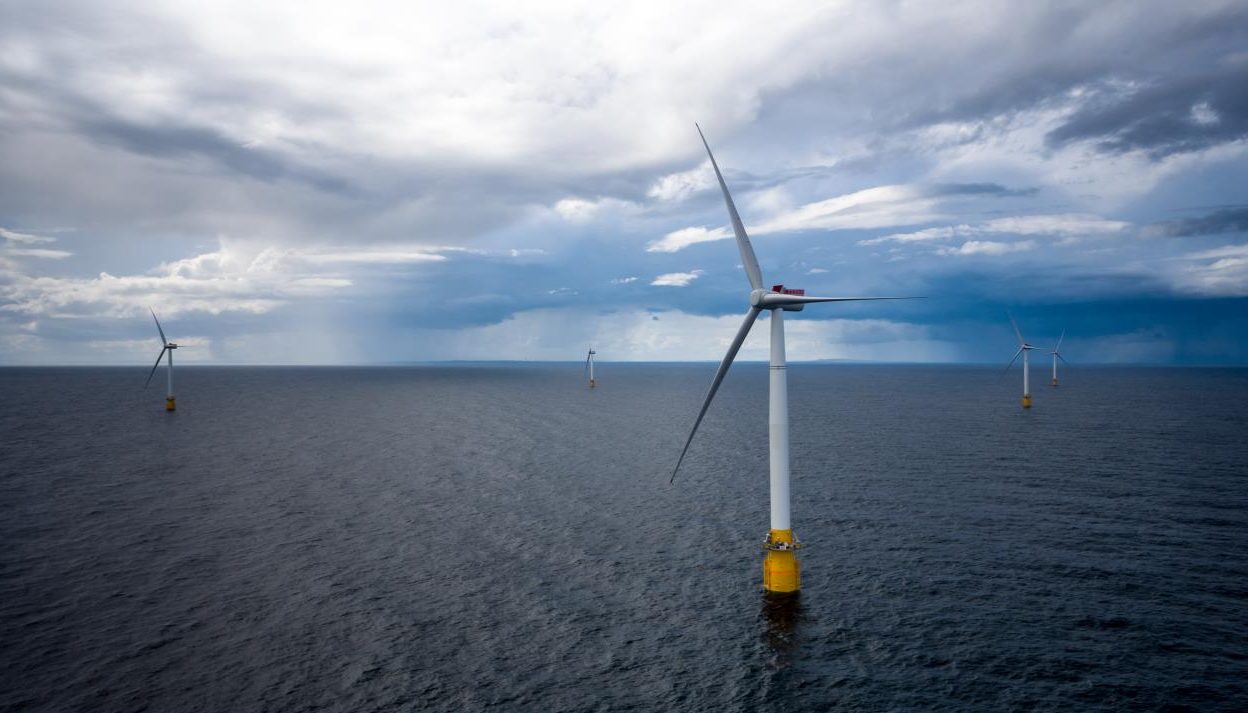The Offshore Renewable Energy (ORE) Catapult’s Floating Offshore Wind Centre of Excellence (FOW CoE) has today launched a report that will allow the floating wind industry to effectively plan for the major roll-out of the technology, which is a key part of the UK’s race to net zero.
The recent ScotWind Leasing process led to the potential of up to 15GW of floating offshore wind development, and a forthcoming leasing process in the Celtic Sea is set to deliver a further 4GW.
The Floating Offshore Wind Environmental Interactions Roadmap, which was delivered in collaboration with Xodus Group, has identified several priority areas that will allow the floating wind industry to develop a portfolio of activities to capitalise on opportunities provided by the industry and mitigate any potential risks, creating a faster and more efficient consenting process for future floating offshore wind farms.
Ralph Torr, Programme Manager of the FOW CoE, from ORE Catapult said: “In the short-to-medium term, floating wind deployment in the UK will grow from early demonstrator projects to full scale commercial wind farms. It is therefore imperative that the industry is aware of the potential environmental impacts of the technology to ensure effective solutions are in place to accelerate the build out of the floating wind farms in the most sustainable manner.”
The public report highlights 10 priority areas relating to the specific environmental interactions of floating offshore wind technology, and outlines a series of recommended actions to address current knowledge gaps. These include: Aviation Safety, Colocation and Coexistence, Cumulative Impacts, Electromagnetic Fields, Fisheries Access, Habitats Regulations Assessment, Navigational Risk, Ornithology, Skills Gaps, and Underwater Noise.
Identifying these priority areas of focus will pave the way for the next phase of the project, where the FOW CoE will support the development and delivery of an Environmental Interactions Strategic Programme of research activities to address the knowledge gaps identified in the Environmental Interactions Roadmap. This will be delivered with the support of a Steering Group comprising key stakeholders, including the Department for Business, Energy and Industrial Strategy, Crown Estate Scotland, the Department for Environment Food & Rural Affairs and The Crown Estate.
Environment Minister from the Department for Environment Food & Rural Affairs (DEFRA), Rebecca Pow, said: “Our marine environment is a vital asset in developing a clean, affordable and secure energy supply for the UK, and floating offshore wind provides new opportunities to unlock more waters for clean energy.
Data and evidence are integral to achieving this while continuing to meet our commitments on ocean recovery. I’m delighted that DEFRA will be working closely with the FOW CoE in delivering a strategic programme of research to improve our understanding of the environmental interactions of floating offshore wind.”
Huub den Rooijen, Managing Director Marine at The Crown Estate said: “Today’s report provides a clear and valuable framework for improving our understanding of the interactions between floating offshore wind and the marine environment, and how best to support industry to develop this technology in an environmentally responsible way. We look forward to fully participating in the Environmental Actions Strategic Programme and building on this important work”.
Chris Willow, Head of Floating Wind Development at RWE and on behalf of the FOW CoE Executive Governance Board added: “It is clear that floating wind is going to play an important role in helping the UK achieve its Net Zero goals. It is also clear that activity is going to accelerate quickly so we need the consenting process to be fit-for-purpose.
“Fortunately, floating wind is an evolution of conventional offshore wind, so we don’t need to go back to basics, but we do need to make sure everyone involved understands the differences and we agree on the best way to deal with them.
“This project has identified a clear list of priority topics, and effectively sets the agenda for what the industry needs to work on with local and national stakeholders going forward.”
Two additional reports from the FOW CoE were also launched at the Global Offshore Wind 2022 conference this week, looking at International Market Opportunities and the Strategic Infrastructure and Supply Chain Development.
The FOW CoE is entering its third year as an internationally recognised initiative to reduce the cost of energy from floating wind. The centre was established to accelerate the build-out of floating farms, create opportunities for the UK supply chain, and drive innovation in manufacturing, installation and O&M.



























